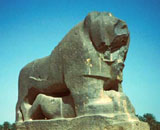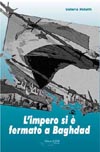September 19, 2014
It is a well-known yet understated fact that Israel uses Palestinian land and its civilian population to test military innovations and "cutting edge" crowd control techniques. However, there is an issue often side-tracked, whether intentionally or not, that deals with the use of cheap Palestinian labour in Israel's growing industrial market.
The settlement industrial zones in Area C of the West Bank house chemical factories that have grown into powerful and lethal means of oppression for the communities that they smother. There are now 11 factories in the Tulkarem area, all of which are on internationally-recognised occupied Palestinian land within the 1967 borders, displaying a ruthless disregard for the rights of the residents who have to live with the horrific smell, constant threat of land theft, and the health risks that come with proximity to such harmful substances.
Israel's economic interests guide much of its behaviour towards Palestinians and their land; none is more overt than the placing of these factories in and around the villages of Tulkarem. Palestinians in Area C already suffer from Israeli military and civil control, leaving room for almost total impunity and virtually no means of redress. Living under military occupation and a hostile government the people here have already suffered their fair share of human rights violations.
The location of the factories in the West Bank means that they are staffed almost exclusively by Palestinians. The encroaching wall and subsequent restrictions on movement in the area mean that employment opportunities are extremely limited and agriculture, once a sustainable source of income, is now the only option, and not a profitable one. Since the arrival of the industrial zones farming has become not only dangerous for those that do it and for those that consume its produce, but it has also evolved to become a form of resistance against persistent theft of land and the poisonous substances that are released as waste. In order for the communities to survive in the shadows of the factories they must turn to them for employment. This is a cruel irony for those who have suffered so much from their presence in the first place.
This method of asserting authority over an oppressed population certainly has its psychological effects but there are also the enticing economic benefits of having a Palestinian workforce that Israel seemingly cannot resist. Adeeb Mohammed Awad lives very close to one of the Nitzanei Shalom factories; he told me that the workers are paid 150 shekels per day, which is the equivalent of ú25. To put this into context, this means that an employee would have to work more than 7 days a week just in order to earn the Israeli national minimum wage of 4,300 shekels a month.
This is, in fact, just one example of Israel's exploitation of non-Israeli workers. Though it is easy to jump to the conclusion that it is treatment reserved only for the Palestinian labour force, this would be to misunderstand the infrastructure of Israel's labour market. Kav LaOved, an Israeli NGO that works to protect the rights of the most disadvantaged workers in Israel, paints a bleak picture of the state's attitudes to equal rights.
Of course the Palestinian problem transcends just labour rights; it encompasses the denial of an official nationality and the subsequent protection afforded by it. Palestinians employed in the industrial zones are stuck in a sort of limbo where they qualify for employment but not for legal protection from their employers. As long as they exist in this vacuum without protection, they are a great source of cheap labour for Israel. When questioned about the poor pay in the factories, the most common response from employers has been that it is a higher wage than in the rest of the West Bank. Indeed, the location of the factories within settlements close to the buffer zone means that Israel could and does argue that they have no responsibility for the people working there as they are beyond the green line, whilst also reaping the economic benefits of their location outside Israel proper.
Settlement factory workers have been protected under the Israeli Labour Law since 2007 when a precedent-setting decision was made unanimously by nine presiding judges. This meant that Palestinian or migrant workers in Israeli settlements would no longer fall under the Jordanian Labour Law, under which they were afforded little or no protection. If upheld, this law would ensure a minimum wage equal to that of Israelis, annual leave, sick days, compensation for injury, overtime pay and the possibility of taking companies to court if they do not comply. Workers currently receive none of these "benefits" and it is common practice to fire workers who complain.
On speaking to two families living in the shadows of the Nitzanei Shalom industrial zone, I was surprised to discover to what extent the Israeli law had not changed anything for the employees of the factories and those living around them. In fact, it was some time after speaking to Adeeb Awad and Fayez Odeh that I came across the supposed change of 2007, having previously assumed, like most others, that the Jordanian Labour Law was largely to answer for the employees' total lack of redress and appalling working conditions. Adeeb Awad told me in error that workers do fall under Jordanian Labour Law and therefore have no health or injury insurance, no rights; international standards (ISO) are not met in the factories and they cannot take their employers to court. However, labourers in the settlements have officially been under Israeli law for 7 years and a complete absence of visible change is demonstrated here by Adeeb's assumption that they are not. It offers up a stark reminder of the impunity with which Israel operates in the occupied territories.
Though conditions remain bleak and change seems unlikely, the years following 2007 saw Kav LaOved take several cases to court, suing certain factories for non-compliance. Though largely unfruitful, collective court cases do have some impact in helping to draw a line over what companies can get away with without some backlash. Nevertheless, accounts of the conditions of the villages where these factories have been planted demonstrate how much more needs to be done.
Fayez Odeh has become a minor celebrity among activists and the local media for turning his energy into making his farm organic. By publicising his struggle against a severely poisoned environment he has obtained lots of media coverage and an influx of activists and volunteers from across the globe. In Palestine he is a pioneer of organic methods already used globally, and by turning his home into a public space filled with a constant stream of international volunteers he has done all he can to protect his diminishing land.
He has suffered continuously since 1985 when the first factory, Geshori, was moved from Netanya in Israel to his village after a court case closed it down due to the complaints of local residents about smell. Interestingly, the land was obtained in the first place as the owner of the orchard was abroad at the time; such land grab techniques were common in the aftermath of the 1967 war. Odeh explained that the industrial area targeted 3 farms including his own, a second and the orchard that is now imprisoned behind the Israeli apartheid wall.
To-date, he has resisted both peacefully and with direct action. Since 1985 he has personally visited the manager of the company, attempted to sue it and paid for the testing of the substances found on his farm. He has made a documentary, approached international organisations and testified at the Human Rights Council in London and Brussels, all to no avail. He explained the changes to his town and the environment that the factory has created around him: "In the early days, black water was dumped onto neighbouring lands. If any animal fell into it, it would be dissolved immediately." This prompted him to approach the Agricultural Research Centre in search of information on chemical waste and attend workshops on the subject. He began to notice white powder lying on his crops and surfaces in the town that is still there today. One week later all of his trees and crops had perished.
In desperation the residents attempted to damage the factory but Odeh soon realised that this was ineffective and dangerous when several attempts were made on his life. He was shot at repeatedly by guards and bulldozers tried to run him over. His crops were sprayed with poison, his fields were flattened and his water supply was cut off. He said that all of these incidents have been documented by the Palestinian-Israeli coordination office, though this means little in effective terms.
Tulkarem has the highest cancer rate in Palestine and medical research has been carried out in the area. However, it is not sufficient to be conclusive and more needs to be done in order to prevent the environmental and human destruction that these industrial zones are still causing.
A study by the Ministry of Health in Tulkarem has compared figures from Nablus and Tulkarem and found serious discrepancies between the two: instances of leukaemia, cancer and lymphoma were, at the time of the study, five times higher in Tulkarem than Nablus and 20 per cent of all cancer and leukaemia cases in the West Bank come from Tulkarem, despite the population amounting to just 5 per cent of the total. In addition, a detailed study was carried out by An-Najah University which discovered, among other things, a much higher level of respiratory impairment in children: "We believe that lead is a major air pollutant in the study areas as the Israeli industrial zone is involved in paint production in addition to the melting of painted materials used for filtration in agriculture. Thus, lead may account for the finding of the high prevalence of respiratory-related disease symptoms among younger age groups." This alone suggests that there is an urgent need for further research and action. The study also documented the following signs of air contamination: the smell, intensity of smoke and existence of brownish spots, which in turn suggest the existence of a high level of oxides which leads to various respiratory problems, including higher susceptibility to infection.
It is not difficult to conclude that the location of the Nitzanei Shalom industrial zone is a political matter. Adeeb Awad, a resident who has recently built a house away from the factory in order to protect his family, believes that it is a mechanism employed to push Palestinians further and further from the border by making life intolerable. He has three children, all suffering from diseases such as pneumonia and chronic eye infections, and has planted trees all around his house in order to filter out the chemical dust and fumes. It is reported widely that the factory closes when the wind blows towards an Israeli settlement on the other side of the factory.
The industrial zones are still growing and the employees and residents remain in a dangerous and uncertain situation. Unless the agreed 1967 borders are enforced this growth will continue and the status quo will remain or get worse. In order to protect the Palestinian people from a government that does not want them, there must be accountability that is enforced from the outside. Asking Israeli corporations to implement their own law in the West Bank, where they are intentionally hidden from view, will not have any great effect. The Palestinian Authority must clamp down on the settlement industry as it grows to become an institutionalised element of the Israeli economy, once again at the expense of the Palestinians.
Also read: Spring time in Tulkarem as farms fight Israeli chemical factories
Source
















